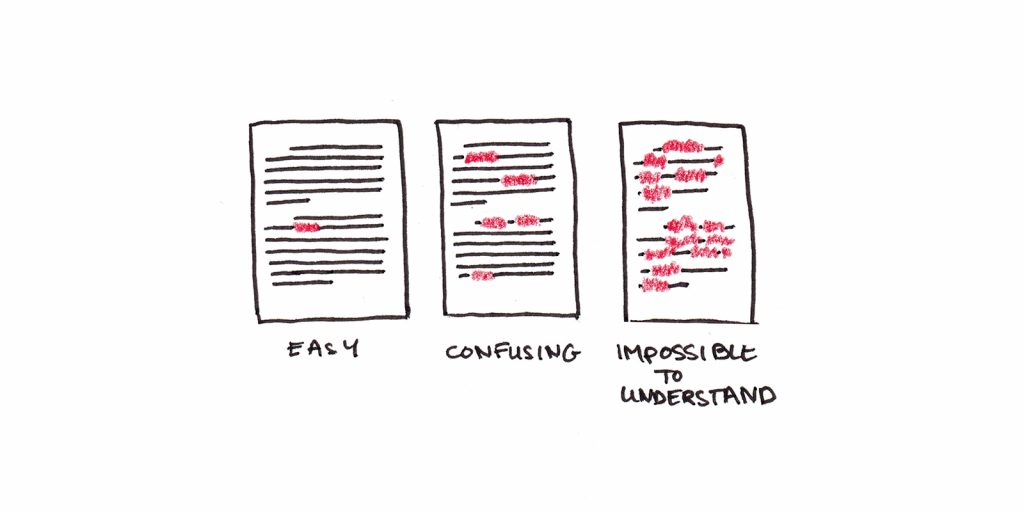A common critique of school is that it leads to shallow memorization of facts. Deep understanding and practical skills are often pushed aside in favor of trivia, quickly forgotten after the final exam.
The most typical reaction, at least from those endorsing the value of education, is to deny the charge. Yes, we all remember dull or seemingly pointless classes. But school provides the necessary foundation for deeper thinking.
What makes E. D. Hirsch’s controversial bestseller, Cultural Literacy, interesting is how it inverts this defense of education. The shallowness of school isn’t a failing but a virtue! Deep understanding and mastery of universal skills are overrated. Instead, we need to supply students with a large supply of background knowledge, often shallow, that allows them to participate in literate culture.

Why I Enjoyed This Book (Even If I Don’t Entirely Agree)
I enjoyed this book, in part, because my intuitions run directly counter to it. I’ve always felt that deep understanding and practical skills are the principal reason to learn anything. That schooling focuses on so much useless, high-culture knowledge has been a major source of my ambivalence towards it.
Most educational proponents defend studying superficially useless topics on the dubious basis that this work will later transfer to other skills. Thus, we have people arguing that reading Shakespeare makes you more empathetic, listening to classical music makes you smarter, or studying military history will sharpen your business acumen.
Yet we now have mountains of psychological evidence that suggest no such thing happens. There are no “mental muscles” that strengthen through general practice. For learning to be useful, the content needs to be useful.
What makes Hirsch’s book surprising and insightful is that he strenuously agrees. Most skills won’t transfer. Most school learning withers to a hazy association in the years after graduation. Reading Shakespeare and memorizing dates won’t ever help you fix a car, program a computer or decide on a corporate strategy.
If school knowledge tends to be shallow and impractical, why learn it? Hirsch argues that such knowledge is needed to participate in literate culture. You need to learn these things because they allow you to read publications like The New York Times or The Atlantic. You need it to understand the allusions embedded in business memos and corporate speeches.
In short, the value of useless, poorly remembered trivia is that it enables access to the social realm of educated society. Those who lack this knowledge, primarily those whose family background provides less of it, are handicapped in participating in elite culture, thus shutting off their economic advancement.
Why Knowledge Matters
Say you wanted to start reading in another language, which words should you learn? The obvious answer is that you should start by learning the most common words. You’d also want to prioritize volume over depth. Knowing the origins, connotations, and usage quirks of a single word wouldn’t help nearly as much as having tons of shallower word associations at your fingertips.
Every word you don’t already know impedes your understanding of a text. If you have to look up one or two terms in an essay, that might be tolerable. But twenty? Fifty? Reading might not be worth the effort if you have to look up half the words. Better to watch television instead.

We all intuitively understand that basic literacy requires a vast amount of verbal knowledge. Depth in a handful of chosen words won’t substitute. Neither will the ability to look things up on the fly.
But understanding texts depends not just on word knowledge but on world knowledge. You can’t read an article about American politics, for instance, without some idea of what the Senate is, why people care about who is on the Supreme Court, or that “the White House” refers to the president.
Hirsch’s argument is that we underrate how much knowledge is needed to understand a newspaper or popular nonfiction book. Just as fluent reading requires knowledge of tens of thousands of words, fluent understanding requires thousands of cultural facts that cannot be derived from direct experience.
What Knowledge Matters?
What background knowledge do we need? Hirsch’s answer is empirical: look around and see what knowledge writers assume everyone already knows. That’s what you need to teach.
Hirsch also argues that curricula need to be standardized at the national level. He writes fondly of previous efforts to stamp out linguistic diversity within early nation states and argues that a similar cultural assimilation process needs to continue. Ultimately, Hirsch thinks we need a strong national culture based on shared references if we are to cooperate effectively.
This focus on deliberately cultivating a shared, jingoistic mythology in America has attracted Hirsch the most criticism. Certainly, some have argued that it’s exactly this stamping out of diverse perspectives that is one of modern education’s greatest sins.
I’m not an American, and so I read this section with detached bemusement. In interacting with some Americans, I’ve often been disappointed at how sparse and distorted their knowledge of the broader world is. This isn’t any American’s fault. A side-effect of being from a large country with a dominant media presence is that it’s rarely necessary to consume information not explicitly prepared for a domestic perspective. In this circumstance, unless you take active steps to inform yourself of international views, you won’t encounter them.
While I found the nationalism embedded in Hirsch’s argument distasteful, I thought his idea of making this knowledge explicit to be very interesting.
One challenge I’ve had in learning other languages is, inevitably, you lack not just linguistic knowledge, but cultural knowledge. I find it much easier to read Chinese science fiction than period novels. In part, this is because the average Chinese reader is expected to know quite a bit about medieval China already, which I don’t. In contrast, science fiction relies mostly on the scientific knowledge that I already possess.
I would love to see a list of Chinese (or Korean, or Spanish) common knowledge, such as that presented in the back of Hirsch’s book for an American audience. Even an imperfect list would help clarify what most people can be expected to know already, and what knowledge would need to be spelled out for even a literate audience.
Final Thoughts on Cultural Literacy
In high school, I read Shakespeare. Each year, a chunk of the English curriculum was devoted to going through, in detail, one of his plays. If I recall correctly, I think I studied A Midsummer Night’s Dream, Romeo and Juliet, Othello, and Hamlet.
I’m not a huge Shakespeare fan. I don’t feel like I learned much about human nature or life in any broader sense from those works. If that had been the goal, I would have preferred a course on psychology or philosophy. But, I can say that if a reference is made to one of those four plays, I have a reasonable chance of remembering it.
But here’s the problem: Shakespeare wrote a lot of plays. I never studied The Tempest, King Lear, or Julius Caesar. I think I’ve watched movie versions of Macbeth and Much Ado About Nothing. Beyond this, my knowledge of Shakespeare references is limited. This, in turn, limits my ability to see through opaque cultural references that allude to them.
Hirsch’s solution in this case seems practical. A crash course in Shakespeare reviewing the main plot points, characters, themes and sayings from the most commonly read plays would benefit me. We could skip the painful group readings, with high-schoolers stumbling through sixteenth-century English, and get straight to the point.
Something similar has been a goal of mine for awhile. As I’ve spent most of my learning time in the sciences, my humanities knowledge is often weaker. One of my favorite ways to rectify this problem is to listen to survey courses on history, philosophy and literature. These overviews aren’t sufficient for reaching any deep insights. Still, they serve their purpose in providing the background knowledge needed for further reading.
In my mind, Hirsch has done a service in pointing out the value of this kind of knowledge.
However, in other respects, I depart from Hirsch. Half-remembered factoids might be good for filling out the Sunday crossword puzzle, but it’s inert for any other practical problem. Useful skills necessitate depth, detail, and hands-on experience in a way that book learning rarely makes sufficient.
I also think Hirsch neglects the dynamic effects of literate knowledge. Hirsch argues that high-brow publications presume background knowledge because it smooths communication. But I think it’s equally likely that writers use opaque metaphors and allusions as a way of restricting their audience.
There’s an associative quality between writers and their audiences. A writer is keen to be not just widely read, but to be read by the right kind of people. Literary allusions are not neutral facilitators of conversation, but tools for restricting text to certain audiences.
This restriction isn’t necessarily conscious snobbery. In-groups of all sorts constantly invent slang, inside jokes and references in order to separate themselves from outsiders. Members show off by conspicuously displaying their mastery of in-group lore. This can create an arms race where in-group texts become increasingly impenetrable to outsiders, on purpose—anyone who doubts this need only to browse some Continental philosophy or fanfiction subreddits.

When considering skills and knowledge that are directly useful for solving problems, this arms race seems less relevant. Yes, escalating knowledge requirements to be an effective programmer can make it harder for programmers to keep up. But at least we get better-written code as a result.
In contrast, when the knowledge learned is known, in advance, to be useless, it risks simply moving the goal-posts. If the goal is to maintain cultural exclusivity, the “literate” will define a new stratum of discourse that is intentionally elevated beyond the masses.
The signaling theory of education remains underrated, in my view, because few educational theorists seriously grapple with it. Hirsch does an excellent job pointing to the value of mastering shared cultural knowledge, regardless of its direct utility for solving problems. But I still believe usefulness should be the benchmark for education as a whole.
What are your thoughts? What role do you think education has in forming the necessary, shared background knowledge of a culture versus deeper understanding or practical skills? Share your thoughts in the comments.


 I'm a Wall Street Journal bestselling author, podcast host, computer programmer and an avid reader. Since 2006, I've published weekly essays on this website to help people like you learn and think better. My work has been featured in The New York Times, BBC, TEDx, Pocket, Business Insider and more. I don't promise I have all the answers, just a place to start.
I'm a Wall Street Journal bestselling author, podcast host, computer programmer and an avid reader. Since 2006, I've published weekly essays on this website to help people like you learn and think better. My work has been featured in The New York Times, BBC, TEDx, Pocket, Business Insider and more. I don't promise I have all the answers, just a place to start.